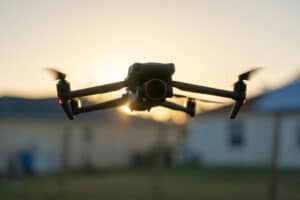Private investigators can juggle a lot out on the job. That includes managing notes, using the right surveillance equipment, mapping out an area, and much more. But PIs should also be mindful of their own safety and health when working. PIs on a case can face a variety of dangers, including being spotted by possible violent people, surveilling dangerous neighborhoods, or getting distracted while driving. Keep these tips in mind to help improve your own safety.
Add a Ballistic Vest to Your Kit
PIs aren’t as likely to face danger from firearms as some professions, but it can happen. Sometimes people may assume PIs are trespassing (a private investigator should never illegally trespass, but the details don’t always matter to angry property owners). In cases involving kidnapping or other illegal activities, violence is also a possibility.
However, many kinds of ballistic vests are noticeable, which is something PIs may want to avoid whenever they can. Choose a lighter ballistic vest that still offers some protection, while also being easier to hide under clothes. It’s not necessary to wear it on every job, but cases with a higher risk of violence provide a good reason. Even if you aren’t afraid of gunfire in your line of work, you may still want to include a knife vest in your kit for protection.
PIs Rarely Need to Be Armed, But Pepper Spray Goes a Long Way
Should PIs carry weapons themselves? It’s not typically necessary, especially when it comes to firearms. Carrying a gun can give PIs away when they are trying to stay unnoticed and may escalate dangerous situations. However, that doesn’t mean that PIs should go without any protection. Pepper spray and other powerful deterrents are a perfect addition to a private investigator’s kit: They’re small enough to hide anywhere and can quickly deal with any unexpected attackers while on the job.
Leave a Record of Where and When You’re Going Places
PI work can take investigators to many different places in their area, sometimes for long periods of time. When heading out, leave a note or memo about where you are going and what your objective is there. Whether you leave it at the office or with your family, it’s important that people be able to find you if necessary. This can also help if you get in an accident or other trouble while away. Also, keep in mind that GPS trackers aren’t just for tracking other vehicles: Equipping your vehicle with a tracker will allow your coworkers or loved ones to know where you are, too.
Check Your Emergency Numbers
Today’s smartphones have excellent emergency features that allow you to contact 911 or a customized emergency number in seconds. Learn how that feature works on your phone – It’s usually a long press or button combination, plus a confirmation on the touchscreen. With a little bit of practice, this can be done while barely looking at your phone. While you’re at it, take a look at the emergency contacts you have set up, and change them if necessary to updated numbers for the right people.
Have Escape Plans
As a general rule, when surveilling a new property or neighborhood, understand your exit points. Have a plan to get out fast if necessary – without getting lost or getting into an accident. The same is true if you are surveilling inside a bar or other location. Know where the exits are and how you’re going to leave if you need to get out in a hurry to avoid detection or dangerous situations.
Get Up and Move Around
Your physical health is also important! Sitting for hours in your car is a common part of surveillance cases, but that’s not great for your body. Set some timers so you take breaks to stretch, move around as much as possible, and generally get your blood flowing a little to help prevent problems with sitting around all day. It’s also a good idea to practice other healthy habits during surveillance, like eating healthy (try to prepack healthy meals) and staying cool on hot days.
Practice Defensive Driving
Defensive driving courses are one of the most helpful types of training for private investigator. PIs often have to multitask when driving. That can include snapping photos out of the car, navigating unfamiliar roads, trailing someone from a safe distance, and talking with contacts while on the road. All this can raise the risk of accidents, and associated liability issues. To help prevent these problems, invest in a defensive driving course and keep your vehicle in excellent condition.
Final Notes
PIs may have a lot to do when out on the job, but safety is always an important factor. Practicing basic safety like our tips can help prevent accidents, avoid violence, and decrease threats. Think about the kinds of cases you commonly work, and what dangers may be unique to them. Sometimes a simple change, like adding protective equipment or going on jobs with a partner, can make a lot of difference. And, as always, make sure you have the right insurance for private investigators to help out if something ever goes wrong.






